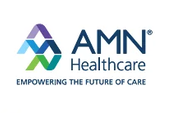June 2, 2025

Webinar – Preparing for What’s Next in Language Access: Navigating Regulatory Shifts + Sustaining Equitable Care, June 12
Recent federal actions have reignited questions about language access requirements – but despite the headlines, the core compliance framework remains steady. What’s changing is how leading health systems are adapting and communicating across increasingly diverse patient populations.
In this session, legal counsel and leaders from Intermountain Health, Main Line Health and Catholic Health share how they’re approaching regulatory uncertainty, refining internal processes and protecting patient trust – all without starting from scratch.
What You’ll Learn:
- Legal clarity: Recent federal changes and what they mean for compliance and risk exposure,
- Inside the playbook: How Main Line Health and Catholic Health are adapting communication practices, and
- Systemwide impact: Ways language access can drive better outcomes and long-term financial stability.
Cost: Free
When: Thursday, June 12, 11:00 a.m. -12:00 p.m.
Click Here to Register





